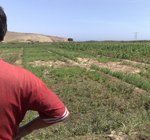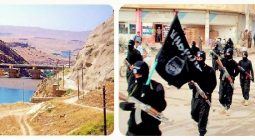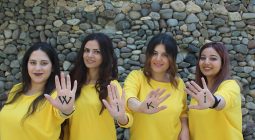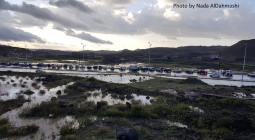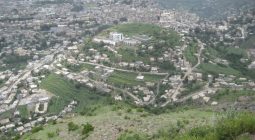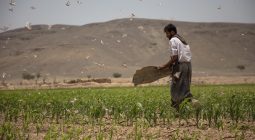Stories from the Arab World
The topic “Water in the Arab Region” conjures images of an oil-rich, water-stressed part of the world mired in conflict. As an internet search query, it throws up millions of results– mostly reports, news items and analyses presenting water in the region as a precious substance that is the ‘new oil,’ the probable cause of the next big conflict, a near-insurmountable challenge.
Of course, there is much merit to this topic and the macro-level discussions it triggers. The Arab region (see map) is the most water-stressed in the world, with per-capita availability being an eleventh of the global average. The region accounts for 5% of the global population but has less than 1% of its water resources. The richer Arab countries have been investing heavily in seawater desalination despite the technology’s high costs. This is indicative of how acute the problem of scarcity is, as does the prominence of water as a contentious issue in cases of conflict between nations and ethnic groups.
At the same time, there is much value to unpacking this vast region down to the various countries, regions, tribes, organizations and individuals—and listening to their individual water stories. It reveals a wide variety of problems, achievements, conflicts and partnerships, many of which vanish as the narrative is aggregated up to the regional level. For example, water scarcity has created the need to economize and triggered several innovations, such as salt-resistant crop varieties (UAE), or artificial wetlands to treat wastewater (Egypt). Palestinian communities in the West Bank continue to walled out of aquifers, jobs, markets and families by the Israeli separation wall. However, in a rare win for environmentalism and non-violent resistance, a Palestinian village and the Israel Nature and Parks authority came together to campaign for UNESCO World Heritage status for an ancient irrigation system. Even as drip irrigation systems are championed the world over as a tool to economize water use, experiences from orange orchards in Egypt have demonstrated their downside, such as how they can lead to over-extraction from aquifers or lead to salinization of the soil. In these tough times for Yemen, even as commentators proclaim that “….no one is in charge,” hope can be drawn from numerous examples of Yemeni communities coming together to manage drying aquifers and managing to rejuvenate them.
These stories—and many more—are pinned on the map above. Click on the pins to pull out the stories and read/watch them (or click the square button in the top-left corner). This is by no means a definitive list—over the coming months, we will drop more pins and add more stories—please stay tuned to our Facebook page, our Twitter handle and our newsletter. Most importantly, we invite you to share your own stories. Please contact us on info@thewaterchannel.tv We look forward to hearing from you!

Videos
More >Articles
More >Blogposts
More >Dossiers
- Managing Desert Locusts
- Green Roads for Water
- Dryland Development
- Green Transformation
- Regenerative Agriculture
- Water and Development Partnership
- Preserving Assets - Operation and Maintenance in Delta’s
- None left behind
- Stories from the Arab World
- Water in the newsroom
- The underground drought
- Is the world getting saltier?
- Mega Irrigation
- Water integrity
- Livelihoods from Floods
- Water Productivity
- Uncategorized


